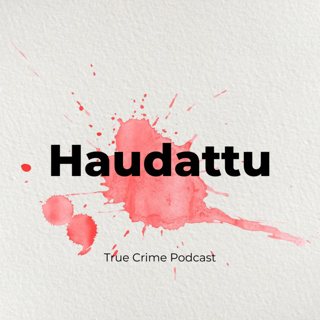
Jan Lemnitzer, “Power, Law and the End of Privateering” (Palgrave, 2014)
Jan Lemnitzer‘s new book Power, Law and the End of Privateering (Palgrave, 2014) offers an exciting new take on the relationship between law and power, exposing the delicate balance between great powers and small states that is necessary to create and enforce norms across the globe. The 1856 Declaration of Paris marks the precise moment when international law became universal, and is the template for creating new norms until today. Moreover, the treaty was an aggressive and successful British move to end privateering forever – then the United States’ main weapon in case of war with Britain. Based on previously untapped archival sources, Jan Lemnitzer shows why Britain granted generous neutral rights in the Crimean War, how the Europeans forced the United States to respect international law during the American Civil War, and why Bismarck threatened violent redemption during the Franco-German War of 1870/71. The powerful conclusion exposes the 19th century roots of our present international system, and why it is as fragile as before the First World War. A sample chapter of the book can be found on the publishers website here. Learn more about your ad choices. Visit megaphone.fm/adchoices Support our show by becoming a premium member! https://newbooksnetwork.supportingcast.fm/military-history
22 Tammi 201539min

Elizabeth Schmidt, “Foreign Intervention in Africa: From the Cold War to the War on Terror” (Cambridge UP, 2013)
Elizabeth Schmidt‘sForeign Intervention in Africa: From the Cold War to the War on Terror (Cambridge University Press, 2013)depicts the foreign political and military interventions in Africa during the periods of decolonization (1956-75) and the Cold War (1945-91), as well as the periods of state collapse (1991-2001) and the “global war on terror” (2001-10). In the first two periods, the most significant intervention was intercontinental. The United States, the Soviet Union, China, Cuba and the former colonial powers entangled themselves in numerous African conflicts. During the period of state collapse, the most consequential interventions were intracontinental. African governments, sometimes assisted by powers outside the continent, supported warlords, dictators, and dissident movements in neighboring countries and fought for control of their neighbors’ resources. The global war on terror, like the Cold War, increased the foreign military presence on the African continent and generated external support for repressive governments. In each of these cases, external interests altered the dynamics of internal struggles, escalating local conflicts into larger conflagrations, with devastating effects on African populations. Schmidt’s book is an excellent synthesis of the past 70 years of African history and politics. Her book is provocative, thoughtful and passionate. It is a superb book for students, general readers as well as scholars. Learn more about your ad choices. Visit megaphone.fm/adchoices Support our show by becoming a premium member! https://newbooksnetwork.supportingcast.fm/military-history
21 Tammi 201543min

Glen Jeansonne and David Luhrssen, “War on the Silver Screen” (Potomac Books, 2014)
War has been a constant topic for feature films since the invention of the motion picture camera. These events made for interesting stories and dynamic visual representations. In their book, War on the Silver Screen: Shaping America’s Perception of History (Potomac Books, 2014), Glen Jeansonne and David Luhrssen discussed a number of films that dealt with conflicts over the last 100 years. Beginning with World War I through the present War on Terror, the authors reviewed how selected films dealt with the issues of the particular war, the people who fought the war, and the society affected by the war. In this conversation with co-author David Luhrssen, he discusses how the book was conceived, how specific films were chosen, and the specific ways that the films represented the individual conflict. Learn more about your ad choices. Visit megaphone.fm/adchoices Support our show by becoming a premium member! https://newbooksnetwork.supportingcast.fm/military-history
5 Tammi 20151h

Charles F. Walker, “The Tupac Amaru Rebellion” (Harvard UP, 2014)
Charles F. Walker‘s book The Tupac Amaru Rebellion (Harvard University Press, 2014) charts the rise, fall, and legacy of a massive uprising in colonial Peru. Indigenous societies in the Andes labored under heavy taxes, tributes, and discrimination imposed by the Spanish imperial state. Walker’s monograph follows the rebellion of a multiethnic group of indigenous, mestizo, and creole subjects, led by José Gabriel Tupac Amaru in 1780. Along with his wife Micaela Bastidas, Amaru’s leadership posed a serious challenge to Viceroyalty of Peru. Although ultimately unsuccessful, Amaru’s rebellion inspired and gave strength to other uprisings in the Andes. With an engaging narrative of the rebellion’s progress, Walker provides a vivid explanation of one of the largest and most important colonial rebellions in the eighteenth-century Americas. Learn more about your ad choices. Visit megaphone.fm/adchoices Support our show by becoming a premium member! https://newbooksnetwork.supportingcast.fm/military-history
23 Joulu 201439min

Mark R. Anderson, “The Battle for the Fourteenth Colony” (UP of New England, 2014)
My most current guest is Mark R. Anderson, author of The Battle for the Fourteenth Colony: America’s War of Liberation in Canada, 1774-1776 (University Press of New England, 2014). Anderson’s award-winning book presents the most detailed and nuanced study of the entire Quebec campaign in print today.Long an under-represented campaign in the general historiography of the American Revolution, the 1775 Canada expedition is brought to life in Anderson’s treatment, as he presents the story from multiple perspectives, including the American expeditionary force, the British Loyalists, and the Canadien inhabitants of the Quebec parishes.Anderson’s book addresses a major oversight in the historiography of the Revolution, and in the process, is a highly detailed political and military narrative that is destined to be the standard work in the field for years to come. Learn more about your ad choices. Visit megaphone.fm/adchoices Support our show by becoming a premium member! https://newbooksnetwork.supportingcast.fm/military-history
15 Joulu 20141h 2min

Boyd Cothran, “Remembering the Modoc War: Redemptive Violence and the Making of American Innocence” (UNC Press, 2014)
If George Armstrong Custer had kept off of Greasy Grass that June day in 1875, Vine Deloria, Jr.’s manifesto might well have been called “Canby Died For Your Sins.” The highest ranking U.S. military official to be killed in the so-called “Indian Wars,” General Edward Canby’s death at the hands of Modoc fighters in 1873 unleashed a campaign of ethnic cleansing and guerrilla resistance later colloquialized as the Modoc War. An international sensation at the time and iconic in the decades following, the Klamath Basin struggle has been largely overshadowed in contemporary historical memory. In his razor-sharp account Remembering the Modoc War: Redemptive Violence and the Making of American Innocence (University of North Carolina Press, 2014), historian Boyd Cothran not only reconstructs this dramatic story but traces how various actors–pushed and pulled by the demands of an acquisitive capitalist market–transformed the memory of the war into a redemptive tale of American innocence, a recasting of colonial violence that still shapes U.S. self-perceptions today. Learn more about your ad choices. Visit megaphone.fm/adchoices Support our show by becoming a premium member! https://newbooksnetwork.supportingcast.fm/military-history
9 Joulu 20141h 5min

Michelle Moyd, “Violent Intermediaries: African Soldiers, Conquest, and Everyday Colonialism in German East Africa” (Ohio UP, 2014)
In her imaginative and scrupulous book, Violent Intermediaries: African Soldiers, Conquest, and Everyday Colonialism in German East Africa (Ohio University Press, 2014), historian Michelle Moyd writes about theaskari, Africans soldiers recruited in the ranks of the German East African colonial army. Praised by Germans for their loyalty and courage, the askari were reviled by Tanzanians for the violence and disruptions the askari caused in their service to the colonial state. Moyd questions the starkness of these characterizations. By linking askari micro-histories with wider nineteenth-century African historical processes, she shows how the askari, as soldiers and colonial intermediaries, not only helped to build the colonial state but also sought to carve out paths to respectability and influence within their own local African contexts. Moyd offers a truly fresh perspective on African colonial troops as state-making agents and critiques the mythologies surrounding the askari by focusing on the nature and contexts of colonial violence, notions of masculinity and respectability. Learn more about your ad choices. Visit megaphone.fm/adchoices Support our show by becoming a premium member! https://newbooksnetwork.supportingcast.fm/military-history
4 Joulu 20141h 6min

John Morrow and Jeffrey Sammons, “Harlem’s Rattlers and the Great War” (University Press of Kansas, 2014)
John Morrow and Jeffrey Sammons share their insights on the story of the fabled 369th Infantry Regiment in their book, Harlem’s Rattlers and the Great War: The Undaunted 369th Regiment and the African American Quest for Equality (University Press of Kansas, 2014). Our guests reveal a great deal about the... Learn more about your ad choices. Visit megaphone.fm/adchoices Support our show by becoming a premium member! https://newbooksnetwork.supportingcast.fm/military-history
4 Marras 20141h 18min





















